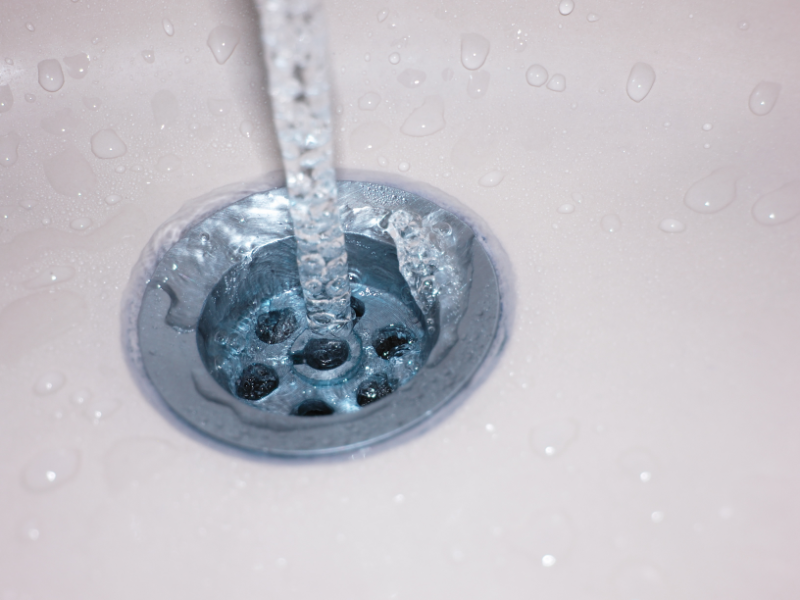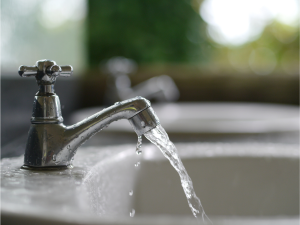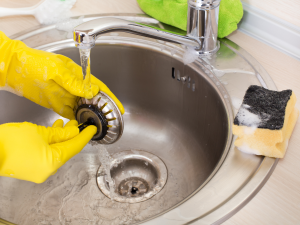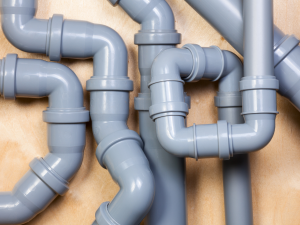Cooking is a part of our human needs, so it’s only natural that something ends up disposed of, whether that’s vegetable skins or extra food that’s gone bad, or simply oil and grease from cooking.
Most types of food waste can easily be tossed into the garbage or a garbage disposal, but homeowners find it much easier to dispose of grease in their sinks. Many still ask us, though; can you pour grease down the drain?
While there is a simple answer to the question, there’s far more complicated reasoning behind it. Though you’ll easily learn that grease can form clogs, the more detailed points behind the issue are hidden deep in your home’s plumbing. Yes, grease does clog up your drain but the true dangers of greasy pipes happen far out of a homeowner’s reach.
To help homeowners understand what grease does to their plumbing and why they should never dispose of grease in drains, we’ve gathered some of the key points in this guide.
If you suspect a clog deep in your plumbing, you can contact our team at Clover Contracting for help as soon as possible.
What Happens if You Dump Grease Into Your Pipes?
As mentioned earlier, the simplest answer to the question “can you pour grease down the drain?” is no, primarily due to the fact it can cause clogs. While it’s true that all of the cooled-down food juices and oils can easily be scooped out, pouring the grease into a drain can be a far bigger problem for your plumbing.
Anyone that’s spent any amount of time in the kitchen knows that grease and oils solidify over time. These kinds of clogs that form in your drains are a matter of simple chemistry, after all. When the temperature drops and the grease cools, it solidifies. Depending on the amount poured in, the grease becomes lodged in the pipes, blocking the flow of water past it.
Even small amounts of grease can end up causing a massive issue. This is primarily due to what the grease – and oil – are made of. When you pour grease down the sink, the fats in it break down into its basic parts, fatty acids, and glycerol. Those fatty acids slowly bind to the bits of calcium that linger in your pipes and sewers. The acids and calcium mix together, forming a soapy compound that binds to the waste you send down.
Why Grease Is Terrible for Your Home’s Plumbing
If the grease itself doesn’t form a clog on its own, the odd soapy combination of calcium and fatty acids will. These clumps can harden over time, forming stubborn rock-hard clumps that are quite similar to stalactites. These clumps, called fatbergs by most plumbing companies, often form clogs.
What makes them particularly terrible for your sink is the fact that they bind to non-biodegradable matter that gets flushed or goes down the drain. Most of these items tend to be things like baby wipes and other personal hygiene products but can extend to food scraps too. When you pour grease down your drain again, it collects on the fatberg, binding to it again and adding another “clean” layer.
Slowly, these fatbergs grow more and more until they either completely block the pipe or cause enough pressure to break it open. To make matters worse, the simple act of pouring grease into a sink can develop into a fatberg within your property line, making the stubborn and expensive problem your responsibility to clean!
How to Dispose of Grease Properly
If you’re looking to avoid the rock-hard fatbergs from forming in your pipes, the best way to do so is to get properly rid of that grease. Many people already know that some kinds of grease – particularly bacon grease – shouldn’t go down the drain, so the next step is to just do the same with the other types of food grease and oil. All manners of fats, oils, and grease should go into the trash instead of the sink.
Of course, that’s only limited to small amounts of grease and food oils. Instead of pouring grease down the drain from a much larger deep frying session, try looking for a nearby recycling depot. Though it might seem odd at first, some depots do accept grease and oil.
This brings the topic to one last method. If you don’t have a recycling depot that can accept the grease and you’d rather avoid just throwing it out right away, reusing it yourself can help. Though it may not be the healthiest option, frying food with the grease can save you on new oil while also using up that grease you’ve gathered.
How to Clean Out Grease From Your Pipes
Though many people might first ask “can you pour grease down the drain?”, there are still a few who only recently learned that it isn’t a good idea. In that case, many homeowners might scramble to look for different ways to clean out their plumbing or clear out any grease that might be lingering. Though there might not be a clog just yet, the buildup can still be in the process of forming.
Chemical drain cleaners might be the first option many people turn to, and for a perfectly viable reason. While they do require you to precisely follow the label’s instructions, the cleaner eats through clogs like they’re nothing. Still, many homeowners want to make sure their pipes are fine, and the risk of using drain cleaners is too much.
For more careful people and those that prefer more homemade alternatives, good old-fashioned hot water and vinegar are great options. The heat from the water is often more than enough to turn the grease and oil back into a liquid form and the vinegar can easily clean any lingering grease from the pipe’s walls.
Here’s Why You Should Never Pour Grease Down The Drain — Conclusion
If you have a stubborn clog in your drain, you can always rely on our team at Clover Contracting. We provide a wide range of commercial and residential drain cleaning services that suit your needs and budget.




